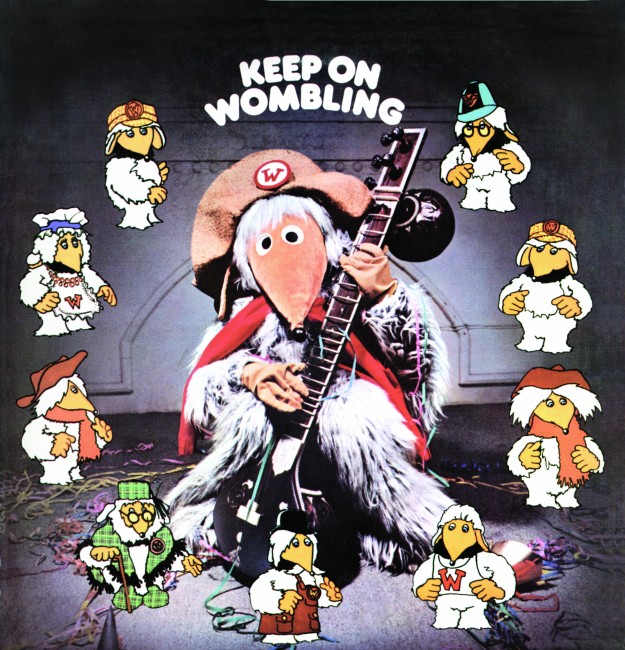I once saw an episode of a British reality show in which a struggling but plucky restauranteur was trying to turn his business around by revamping the menu. At the end of the episode, the restaurant went out of business. What does this prove? British people are bad at some things, including makeover TV shows. A restaurant going bankrupt is not how a reality TV show should end. If there is an attempted makeover taking place, it should be successful; otherwise, you’ve wasted an hour of the viewer’s time. All American reality TV producers inherently know this, due to our nation’s plucky optimism and tireless belief in self-reinvention. Another thing British people are bad at is, of course, 60’s-style bubblegum music. The genre is as brashly perky, albeit potentially insincere, as telling a stranger to “have a nice day!”. That’s why there are only three good British bubblegum songs: “Lollipop Man,” the Balloon Buster’s “Alcock and Brown,” and Simon Turner’s “Shoeshine Boy,” a strange tribute to child labor that exhorts the listener to “get down, get down upon your knees and brush your blues away.” The subject matter may have been odd, but all these tracks are accurate imitations of the classic Kasenetz-Katz style; by sticking to the formula, Brits produced songs that were just as catchy as their U.S. counterparts. What if, instead, U.K. bubblegum creators had sought to create their own uniquely British bubblegum aesthetic? The dispiriting answer is The Wombles, a 1970’s multimedia phenomenon featuring a group of furry mole creature-things who live under Wimbledon Commons. They began life as a children’s book by Elisabeth Beresford and were subsequently adapted for television and music, with Mike Batt as songwriter/performer.
So successful was their career, they managed to release four hit LPs, as well as a greatest hits compilation and a Christmas album. This might not sound that amazing; after all, the Chipmunks were popular too. But the Chipmunks had a compelling backstory regarding their tempestuous relationship with Dave, and their songs touched on a wide variety of topics and themes. By contrast, every Wombles song is about picking up trash. The Wombles storyworld was dreamed up by its creator to teach children the value of being tidy, and the creatures’ main avocation is throwing away rubbish thoughtless humans leave behind. The songs depict them doing so in a variety of contexts, thus transporting children to a magical fantasy world where there’s marginally less litter. The Wombles’ irritating wholesomeness knows no bounds; unlike anyone in a real band, they are “organized, work as a team.” This propaganda may have worked, but at what cost? The Beagles could have kicked these dudes’ asses.
Now let’s turn to “Ping Pong Ball,” a Keep On Wombling album track set in “China,” where a Ping Pong ball is taking place because that’s what the Chinese language sounds like. It opens with flute-y thing and gong; then a string instrument enters playing staccato Chinese-y notes (you know the kind), accented by stabs of keyboard or something. Then electric guitar enters playing a regular non-Chinese guitar line, but there’s still flute in the background being Chinese-sounding. it seems the “Oriental Wombles” are busy demonstrating their “Oriental litter-picking skills.” The vocalist has an undistinctive, smooth voice, and there are also backup singers whose voices have been sped up like the Chipmunks. Along the way we’re told about “a proverb that they sing to the yellow seas,” and also that “Chinatown is moving to the koto and the flute.” CHINATOWN ISN’T IN CHINA. The fuzzy, glam-influenced guitar playing is pretty good, but weak, unaggressive production/recording mutes its effect.
The song is nonetheless a chugging, fast-paced number could hypothetically have been catchy. One major aesthetic and ideological problem, however, is its reliance on “Chinese” motifs that never meld with the overall rock sound, but function only as signifiers of Chineseness. By contrast, music from the period that uses fake Native America motifs at least manages to integrate “Indian” pounding drums into the songs, thus making their fantasy version of Indian-ness sound cool. Perhaps that is why “Indian Giver” and the like sound comparatively acceptable to modern ears. I cannot emphasize enough how inaccurately “Invitation to a Ping Pong Ball” depicts Chinese culture, or how single-mindedly it focuses on the topic of litter collection. 0 points.


